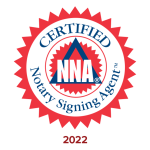As a Notary Signing Center in Orlando Florida, we use Enotaryoncall to administer and take oaths and affirmations online, anywhere, in the comfort of your home. We notarize Wills, Trusts, Power of Attorney, Deeds, US Medical Licensing USMLE, Contracts, Pensions, traveling minors, complete I-9 Form employment eligibility verification and many others. We are also Signing Agents, also known as a loan signing agent, specializes in notarizing mortgage and real estate documents. With Enotaryoncall, we can easily reach signers world-wide who would be otherwise unreachable in person. The signing process is simple and it also lets us know if and when the person has scheduled their appointment. We are experienced in notarizing for clients around the world, besides within USA.
Online Advantages
- Sign anywhere in the world remotely
- Digitizes e-signature with multiple methods
- Improves customer experience by simplifying the signature process
- Provides multi-factor authentication and prevents frauds
- Collect all payments in one easy process
- Safe and secure e-signature
- Encrypted two-way notary sessions
- Easy and fast notarization
FAQ
- Q: Can I invite multiple witnesses to a Notary session?
- A: Yes and if you don’t have a witness, we can provide you one.
- Q: Can a Florida Notary accept an expired ID or Driver License?
- A: Yes and only if has been issued within the past 5 years and bears a serial or other identifying number. You look at the issued date.
- Q: Can I present a photocopy of my ID during remote online notarization?
- A: No. The 3 criteria s. 117.295 are: (1) Requires presentation of a government-issued identification. (2) Credential analysis of uploaded ID. (3) Identity proofing in the form of knowledge-based authentication. If the online notary public is unable to satisfy subparagraphs 1.-3., the online notary public may not perform the online notarization.
- Q: Can a notary public Notarize a photocopy of a birth certificate?
- A: No and yes, a Notary Public cannot certify photocopies of vital records or public records, however the alternative procedure is called “copy certification by document custodian” may be permissible. With this procedure, the document’s custodian (owner) signs a statement attesting to the accuracy of the copy, and the Notary Public notarizes the custodian’s signature on the statement. The difference is that rather than directly certifying the copy, the Notary is notarizing the custodian’s signature on a statement vouching for the copy’s accuracy. Remember, the Notary Public is not responsible for the contents of the document.
Example of copies of public records, CANNOT be attested to by a Florida Notary Public:
-
-
- Any document for which photocopying is prohibited
- Birth Certificate
- Certificate of Citizenship or Naturalization
- Death Certificate
- Documents filed in a court proceeding
- Documents recorded by the Clerk of the Court
- Federal or state income tax forms, already filed
- Marriage Certificate
- Professional licenses issued by the State of Florida
- Public records maintained in government offices
- Student records (transcripts, etc.) kept in public education offices
-
- Q: Can a foreign document be notarized?
- A: Yes. General speaking, most states allows you to notarize a document written in a foreign language as long as the certificate wording is in English or a language the Notary understands. A notarial certificate in English can be added to any document within ENotaryOnCall online.
- Q: Can a Foreign ID be used for notarization in the USA?
- A: Yes. Foreign passports are the most commonly acceptable form of foreign identification for notarization for Florida. One common requirement is that the passport must be stamped by USCIS on entry. Among the states with laws allowing Notaries to accept a properly stamped foreign passport are Florida, Georgia, Nebraska and Tennessee. Florida requires a foreign passport to contain a serial or identifying number and to be current or, if expired, issued within the past 5 year. Florida also allows driver’s licenses if the license has a serial number, photograph, physical description and signature from Mexico and Canada.
- Q: Can I use a translator if I do not speak English?
- A: Yes. We will add a statement in your notarial certificate that you have complied with this requirement of the law: “I further certify that the nature and effect of the document was translated for (name of signer) by (name of translator) prior to notarization.” You may also want the translator to sign the document in front of the Notary as a Witness. The most important thing to remember is that the nature and effect of the document must be translated into a language that the signer does understand. The law does not specify that a written translation is required; therefore, an oral translation is sufficient. Remember, the Notary Public is not responsible for the contents of the document. To sum up, complete the notarial certificate in English. The certificate may be translated into the language of the document, but the translated certificate should not be signed and sealed by the notary, just the original document. (Ref)

